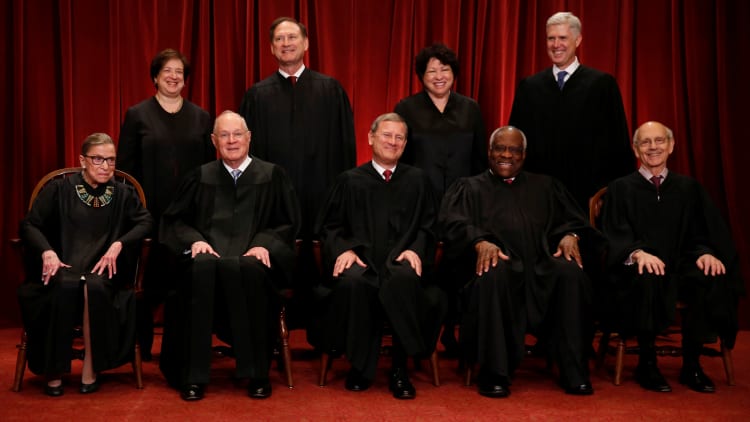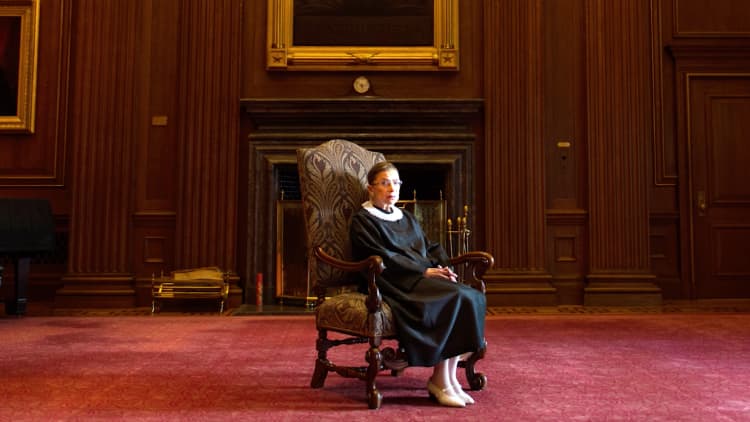The U.S. Supreme Court on Monday erased a ruling from a federal appeals court on the grounds that one of the judges who voted in the case was dead at the time it was handed down.
Judge Stephen Reinhardt, of the U.S. Circuit Court of Appeals for the 9th Circuit, was listed as the author of a majority opinion in April 2018 that expanded protections against wage discrimination under the Equal Pay Act.
The problem with the opinion, the Supreme Court said, was that it was issued 11 days after Reinhardt, an appointee of President Jimmy Carter, had passed away.
The Supreme Court, in an unsigned opinion with no noted dissents, wrote that the 9th Circuit "effectively allowed a deceased judge to exercise the judicial power of the United States after his death."

"But federal judges are appointed for life, not for eternity," according to the justices, who ordered that the lower courts reconsider the issue.
The 9th Circuit had said that Reinhardt had "fully participated in this case and authored this opinion" in a footnote to the now-vacated opinion.
But that didn't pass muster, according to the justices, who wrote that the opinion was not endorsed by a "majority of the living judges at the time of issuance."
It is "well understood," the court wrote, that judges may change their votes up until the very moment when a decision is released.
The 9th Circuit's opinion would have established a precedent in the nation's largest federal circuit barring the use of an employee's prior salary to justify pay discrimination between men and women.
Reinhardt, before his passing, wrote that "to allow employers to capitalize on the persistence of the wage gap and perpetuate that gap ad infinitum — would be contrary to the text and history of the Equal Pay Act, and would vitiate the very purpose for which the Act stands."
Five living judges on the 11-judge panel approved of Reinhardt's opinion when it was issued.
Another five living judges concurred with Reinhardt's judgment, but for reasons of their own. (Three concurrences were written in addition to the majority opinion.)
That meant that Reinhardt's vote would make his opinion count as the majority opinion, therefore creating binding precedent.
"The upshot is that Judge Reinhardt's vote made a difference," the Supreme Court wrote in its opinion. "Was that lawful?"
The answer, it turns out, is no.



